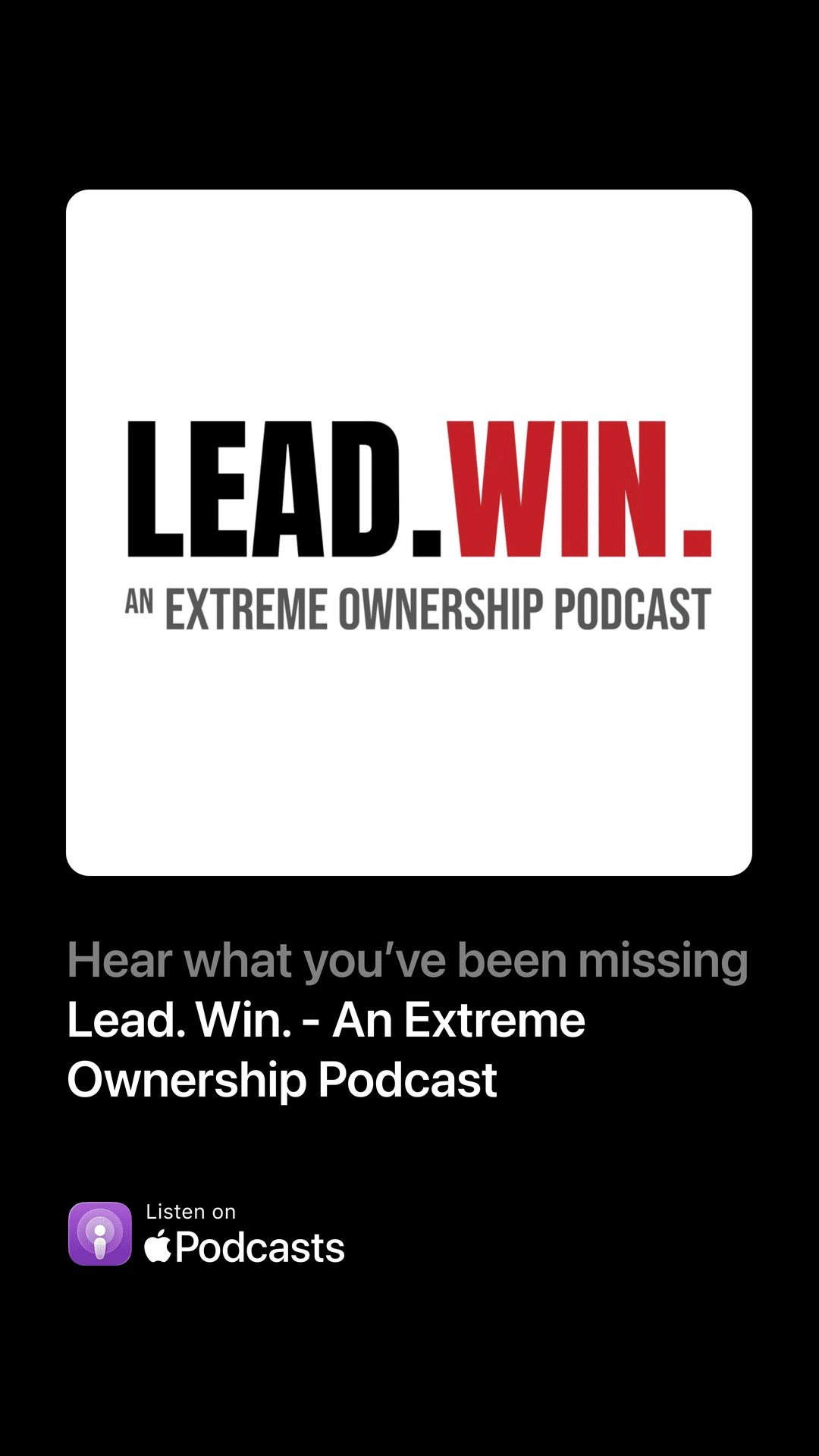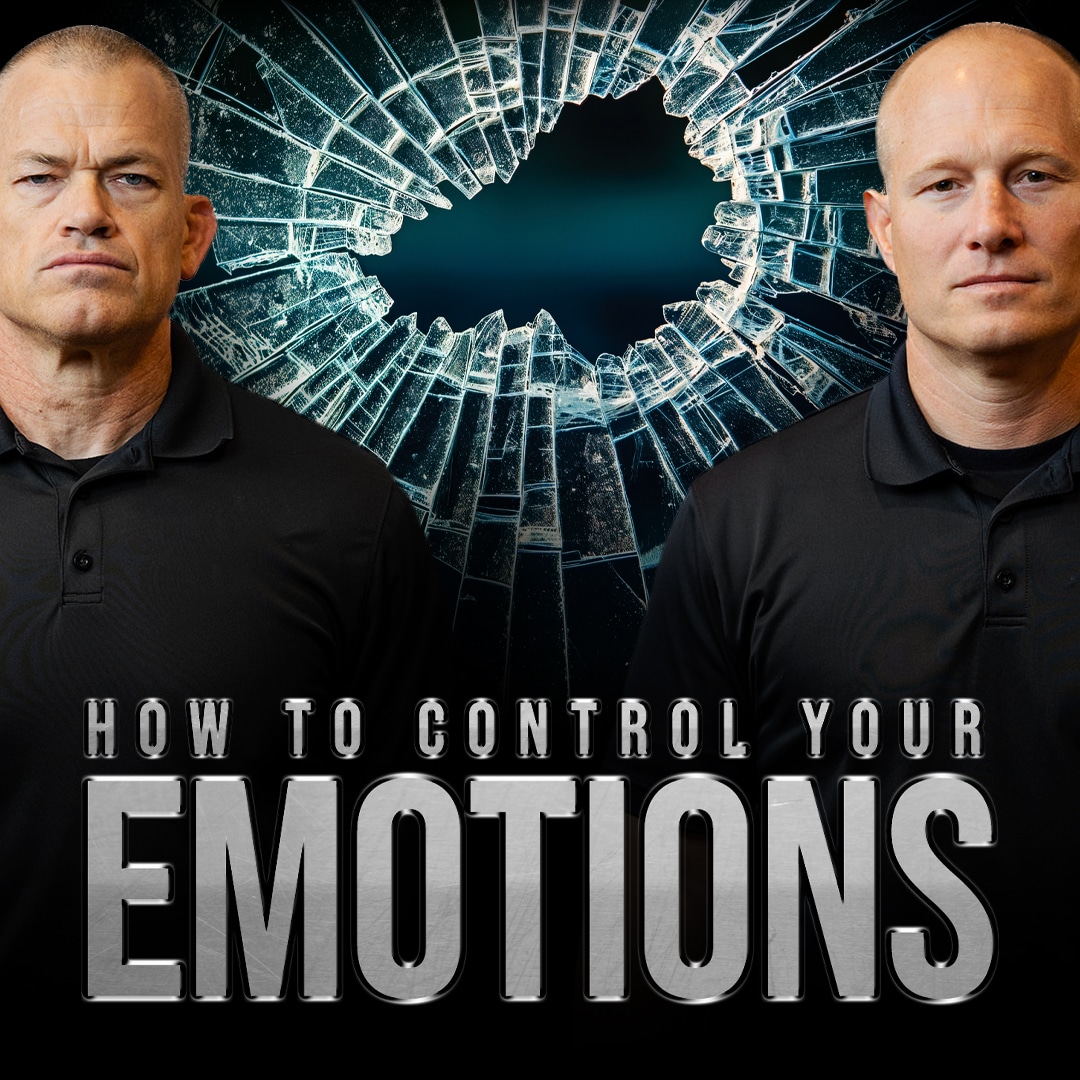“If you can’t control your emotions, how can you control anything?” -Jocko Willink
Emotions are Human Nature
I grabbed the left handle of my ATV and angrily and aggressively hauled myself onto the seat. After starting it and shifting into reverse, I backed out of the garage with reckless abandon, executed an angry three-point turn, jammed the throttle, and sped up my driveway.
My dog, Vallon, a sweet, former bomb-sniffing yellow lab, had wandered up the road for the third time in as many days. I angrily held down the button on the remote control in my hand, which I hoped was sending a signal to his collar to alert him to come back via an audible tone. The app on my phone indicated that his collar had lost signal, so I really had no idea if it was even working. I sped up the road at break-neck speed, scouting for where he had gone. As I drove, I reiterated to myself how little time I had on that particular day to be chasing down a dog.
Human beings are the most intelligent species on the planet. Our big brains have given us the ability to emerge from nature and invent incredible technologies to improve the state of existence of billions of people. These big brains are also packed with an incredibly powerful, and equally unique set of attributes: our emotions. Our psyche is full of a wide variety of emotions that literally supply our humanity and give us the ability to feel the needs of others such that we can invent incredible technologies to help them. However, these same emotions can also lead us to behave in ways that would be essentially indiscernible from that of the most primitive beasts.
How Emotions Take Control
After I got a third of a mile down the road, I spotted him—a yellow streak sprinting through the neighbor’s yard. I already knew what I was going to do. I was going to yell at him. I was going to drive him back home, and to add extra punishment, I was going to withhold his breakfast to really show him that running away was inexcusable.
Human emotions are the most powerful part of our psyches. They allow us to love one another to the point that we would sacrifice everything to save someone we love. That kind of bonding was absolutely necessary as humans evolved because we relied upon camaraderie and tribal bonds to survive the elements of nature.
Due to the strength of these emotions and their deep ingrained nature, we have a natural human tendency to allow ourselves to be guided by them, often to the point that we will act in ways that are detrimental to ourselves and the people we care about.
Our emotions are so powerful that they can convince us to forget about the most important things in life and instead focus intently on whatever it is that is generating the emotional reaction. When we do this, it is called “winning tactically but losing strategically.” Sacrificing our long-term goal to achieve what feels like a win, but objectively and ultimately is a loss. And we even sometimes follow our emotions to the point that we aren’t even considering winning anything. We are simply acting to satisfy our emotions.
What is Emotional Control?
As with all aspects of life and leadership, how we approach our emotions must be balanced. We cannot be devoid of all emotions because then we cease to be human. However, we also cannot be completely driven and controlled by every emotional whim because we will self-destruct. The balance we are trying to strike, then, is to have control of our emotions and to be able to use them as a tool to lead ourselves and others.
In reality, there is no such thing as being able to control our emotions. They are not under conscious control. Ultimately, we seek the ability to control our actions in the presence of our emotions. To be aware of our emotions, but instead of being controlled by them, we remain controlled by strategic thought, which is informed by our emotions.
Take Control Back
I held the button on my remote again. Vallon’s head snapped up, and he began sprinting toward me. I pictured what I was going to yell at him when he got there. I pictured driving back with him and not giving him any food. I then remembered a video I watched from Mike Ritland, the SEAL dog trainer, in which the main point was that the key to training your dog is to reward what you want them to do and correct what you don’t. I realized at that moment that if I yelled at him when he came to me, I would then teach him that coming to me gets him punished.
I took a deep breath and shook my head. When he finally reached me, instead of yelling, I greeted him jovially, told him how good he was, and gave him a few seconds of vigorous scratches on his head. He chased the ATV home, I gave him a bowl of food, and he went to lie down.
How do we control such a powerful force when every evolutionary fiber of our being tells us to listen to it?
Maintain Awareness
To not be controlled by your emotions, you must be cognizant of when they are attempting to take the driver’s seat. You can do this by identifying and being aware of what we call red flags and danger zones.
Red flags. A red flag is a discernible physical or mental sign that you are losing control. Examples of this are gritting your teeth, clenching your fists, or imagining counter-arguments. Every person has their own red flags. To maintain self-control, you need to be aware of yours.
Danger zones. A danger zone is either an environment or a situation in which you tend to lose control. For example, having to go gather Vallon from down the road almost always resulted in me losing my temper to some degree. Another example would be family holidays. Many people are at high risk of losing control of themselves as a result of their interactions with family members. Again, danger zones are unique to each person.
Detach
Once you are aware of your own red flags and danger zones, you can then use one of the most powerful tools in the leader’s toolkit: detachment. Often times, you can use physical actions to help you do this.
Deep breaths. Breath has an incredible effect on your mindset through a variety of biological processes. When you recognize a red flag or prior to entering a danger zone, try taking ten deep breaths through the nose.
Putting your hand under your chin. Quite often, one of the first things we do when we lose control of ourselves is open our mouths to say regretful things. Instead, combat this urge by placing your hand under your chin and forcing your mouth shut. Doing so will remind you that it is best not to speak when emotional.
Looking up. When we become emotional in a situation, we often become target-fixated on it, both mentally and visually. To detach, it can be helpful to look away from the situation by looking up. Doing so will remind the subconscious parts of your brain to detach as well.
Plan ahead. Once you have identified your red flags and danger zones, you can plan ahead for times when you recognize them. Deciding what actions you are going to take will remove any guesswork from the equation and also allow you to react immediately.
Extreme Ownership. The ultimate method for detaching is to develop the mindset of Extreme Ownership. When you recognize that allowing your emotions to control you is a choice instead of an uncontrollable reaction, you regain control. Additionally, when you are of the mindset that everything that happens is your fault and your responsibility to fix, it becomes much more difficult for your emotions to take over.
Conclusion: Lead Yourself to Lead Others
While it is impossible to consciously control your emotions, it is entirely possible to maintain control of yourself. When you master this behavior, your emotions will become simply another tool for you to use to lead both yourself and your team. Additionally, when you are able to detach from emotions in the most chaotic of times, that will be contagious to your team. You will act as a stabilizing force, and help them to detach, relax, look around, and make a call. Maintaining control of yourself in the presence of emotions is incredibly difficult, especially for those who are just beginning to practice this skill. But, just like any skill, this one can be developed through focus and practice. Maintain control of yourself so that you can lead yourself and lead others.




